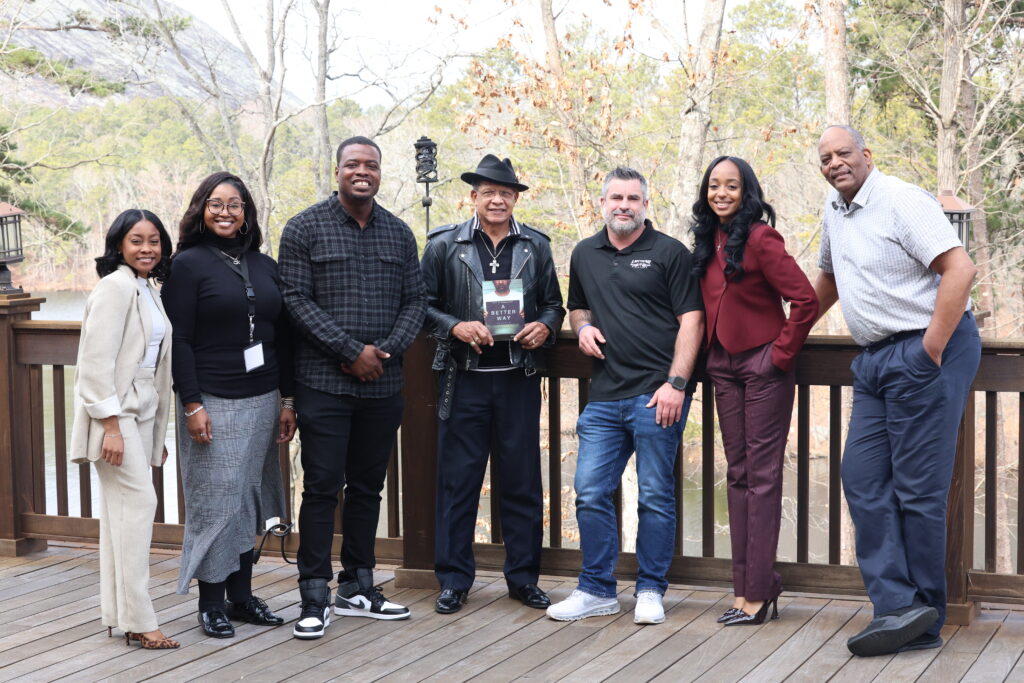
STONE MOUNTAIN, GA (January 31, 2025) – Dozens of social work professionals, educators, and support professionals from around Georgia explored cutting-edge strategies and best practices in social work at the January Georgia Public Defender Council (GPDC) Social Work Conference.
The conference featured speakers from government, private, and nonprofit sectors discussing ways to create collaboration between GPDC social workers, attorneys, and service providers to establish holistic client support teams, said Client Support Services Specialist Candice Chavis.
Chavis said her unit supports holistic legal representation. “Public defenders and social workers work closely with clients, creating strategies to address their specific needs and overcome challenges, leading to greater independence and improved well-being,” she said.
This approach focuses on outcomes and client-centered methodologies, empowering clients, benefiting their personal well-being and public safety, said Chavis, whose department ran the gathering.
The three-day conference of workshops, presentations, and networking opportunities focused on enhancing client outcomes and strengthening interdisciplinary partnerships.
The keynote address by Eyitayo Onifade, Ph.D., M.S.W., focused on the concept of identifying interest convergence.
Dr. Onifade, the founding member of the Consortium for Community Practice and Science, is a full professor and director of the Whitney M. Young Ph.D. Program at Clark Atlanta University.
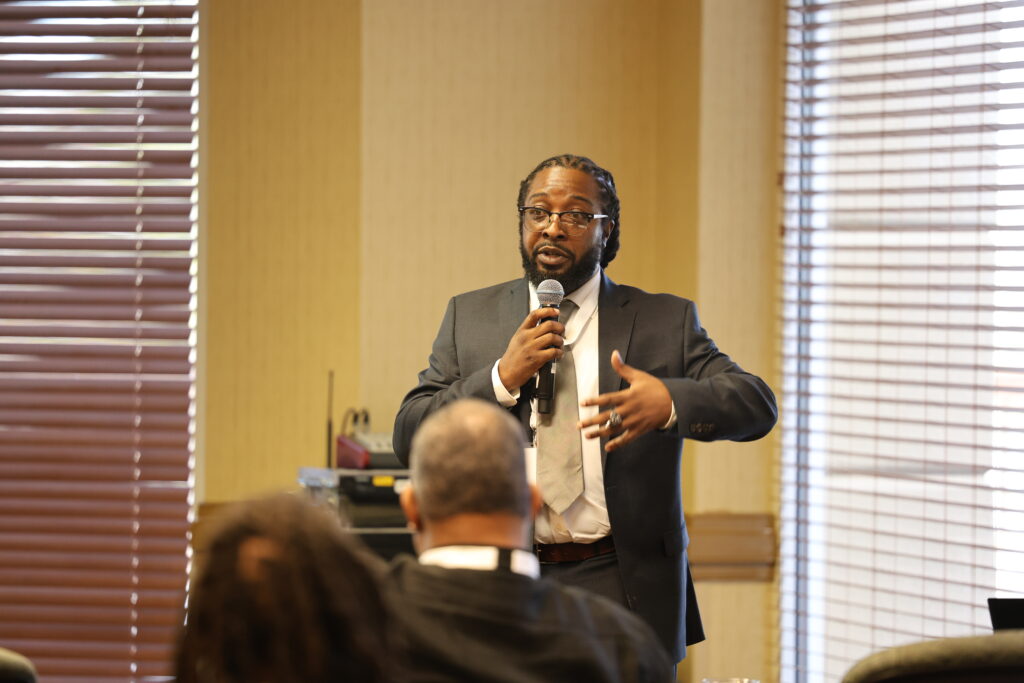
Onifade said interest convergence is a social change process whereby dissimilar groups can align interests. Using this concept can be a way for social workers to create effective partnerships with other actors in the criminal justice system to address real world challenges, Onifade said.
Onifade highlighted successful collaborations and strategies that overcame barriers to cooperation. One example was in Michigan where county officials differed over how to spend a new millage tax allocated to reducing juvenile delinquency.
“Should they expand detention facilities or could there be a more innovative approach?” Onifade said. “Our research identified that 12 percent of youth were responsible for the majority of offenses. They were directed toward formal probation with tailored intensive services costing about $400 a day. The remaining low-risk youth were diverted to diversion programs and community services costing $50 to $75 a day.”
The result was “transformative,” Onifade said. Over the following decade juvenile caseloads were halved without an increase in crime rates.
Danielle Simpson, senior staff attorney in the GPDC’s Youth Advocacy Division, spoke on the power of effective multidisciplinary teams and their critical role in achieving better outcomes for children and families.
Drawing on the sports concept of the “huddle,” Simpson explained how to align diverse perspectives and communicate effectively to foster trust within teams.
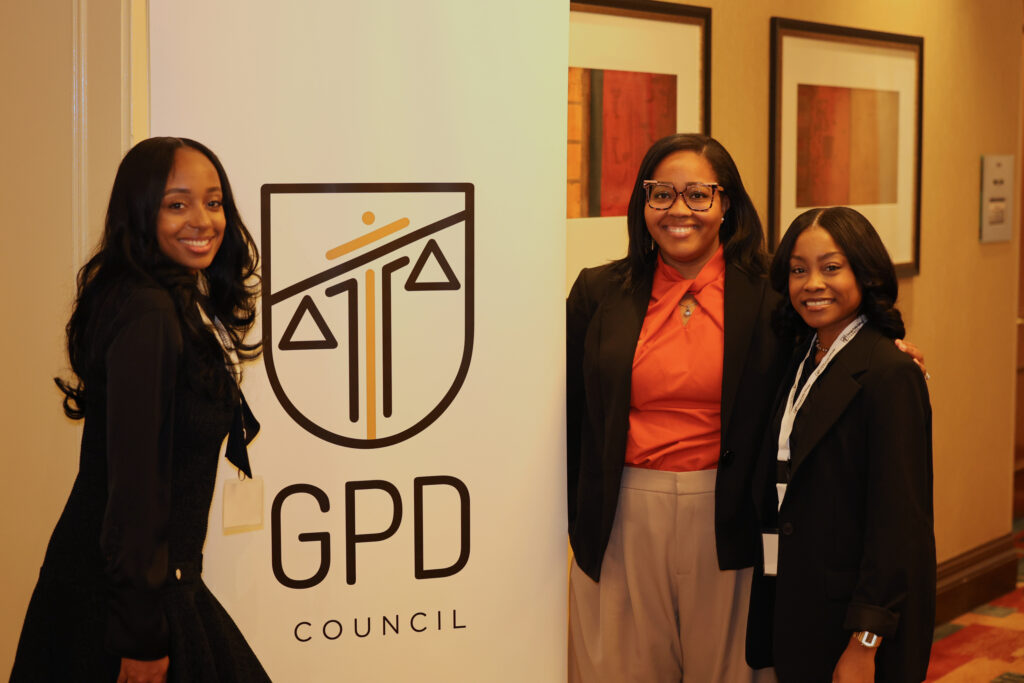
“Building multidisciplinary teams means uniting people with diverse objectives to achieve a common goal, such as lawyers, social workers, mental health professionals, and the clients themselves,” Simpson emphasized. “Working together as a team increases our effectiveness in addressing complex issues, reducing recidivism rates, and enhancing problem-solving skills.”
Simpson acknowledged the importance of mixing team members with various areas of expertise, such as housing, mental health, and substance abuse. By addressing issues collectively, the team can create comprehensive and effective solutions.
“As professionals, we need to collaborate and contribute our unique skills to produce a positive outcome that fosters job satisfaction and strengthens the community,” she concluded.
Latrice Rollins, Ph.D., MSW, and Chazmin Gibbons, BSW, of Morehouse School of Medicine talked about transforming justice through effective case management strategies.
Rollins and Gibbons delved into the importance of case management, common challenges, and evidence-based strategies. Through activities and engaging content, they led participants to achieve insights and gain viable skills to enhance their practice.
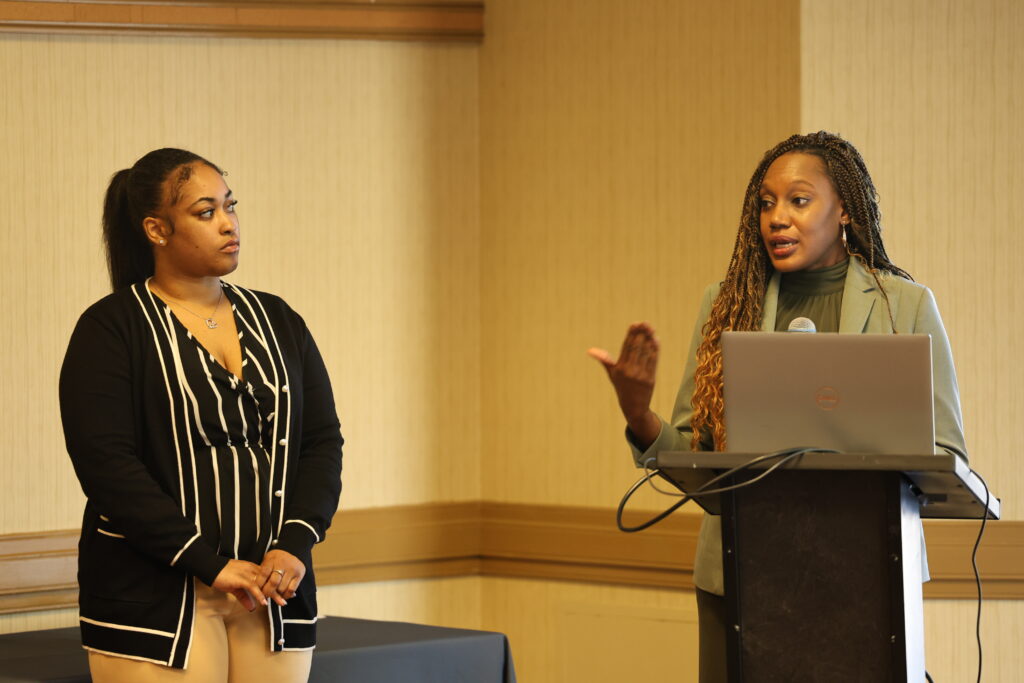
“Case management plays a vital role in coordinating essential services and enhancing client well-being,” Rollins stated. “By organizing tasks, maintaining communication, and collaborating with other professionals, social workers can effectively address clients’ complex needs and optimize the quality of care delivered.”
Rollins emphasized the importance of clear documentation for accountability, continuity of care, and legal protection. The key takeaway is that case management is critical in providing efficient and coordinated services to improve clients’ overall situations.
Resources available for individuals experiencing homelessness, are available from the Georgia’s Department of Behavioral Health and Developmental Disabilities, said Maxwell Ruppersburg, director of Supportive Housing. He explained the process and challenges of referring homeless GPDC clients for housing.
“We have been growing. We now have three [housing] programs as well as some other residential programs. But our work is really centered and grounded in helping folks access housing, Ruppersburg said.
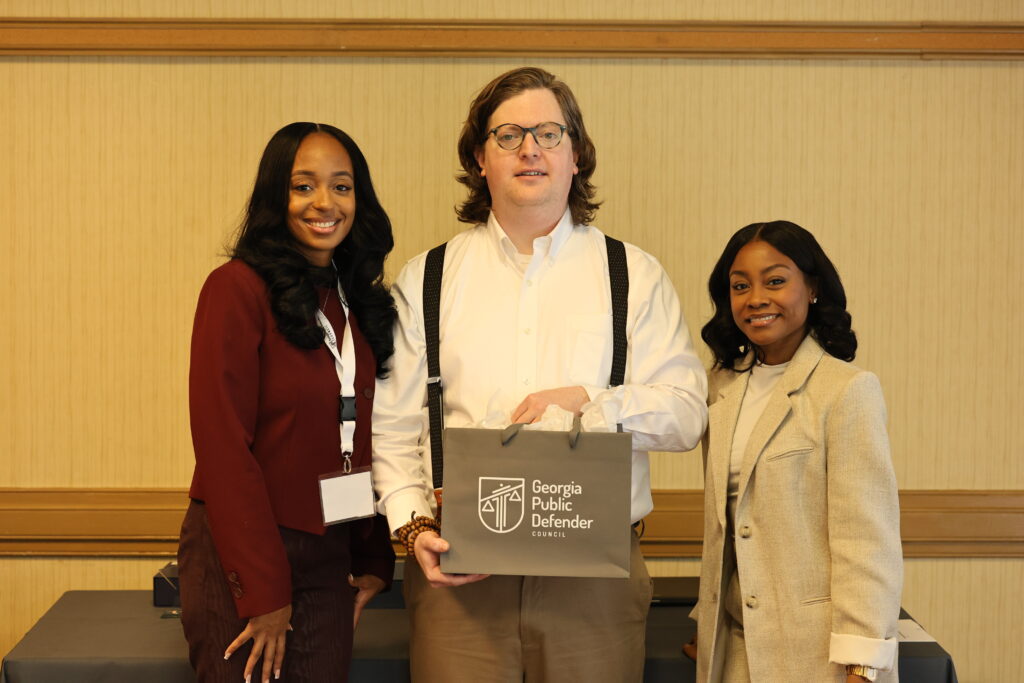
“We exclusively are working with folks who have psychiatric disabilities. They have the most challenges that they have to overcome to get towards their personal goals. So, we say housing is healthcare in our office and our team and our agency because that’s how we view it.”
Ruppersburg provided routes for helping homeless clients such as community service boards, and Georgia’s housing voucher program.
Community organizations and service providers sparked animated discussions by disclosing how they can work with social workers.
A Better Way Ministries, a faith-based recovery program in Senoia, GA, has helped over 3,000 men overcome addiction since 2005. Under Executive Director Sir Philip Bowden’s leadership, the program has grown to accommodate 120 men in three on-site homes.
Intake Coordinator Billy Johnson shared his personal recovery journey, highlighting the program’s focus on discipline, skill-building, and spirituality. The ministry offers a cost-free, 18-month residential program combining work, counseling, and volunteering, collaborating with social workers to identify individuals who can benefit from their approach.
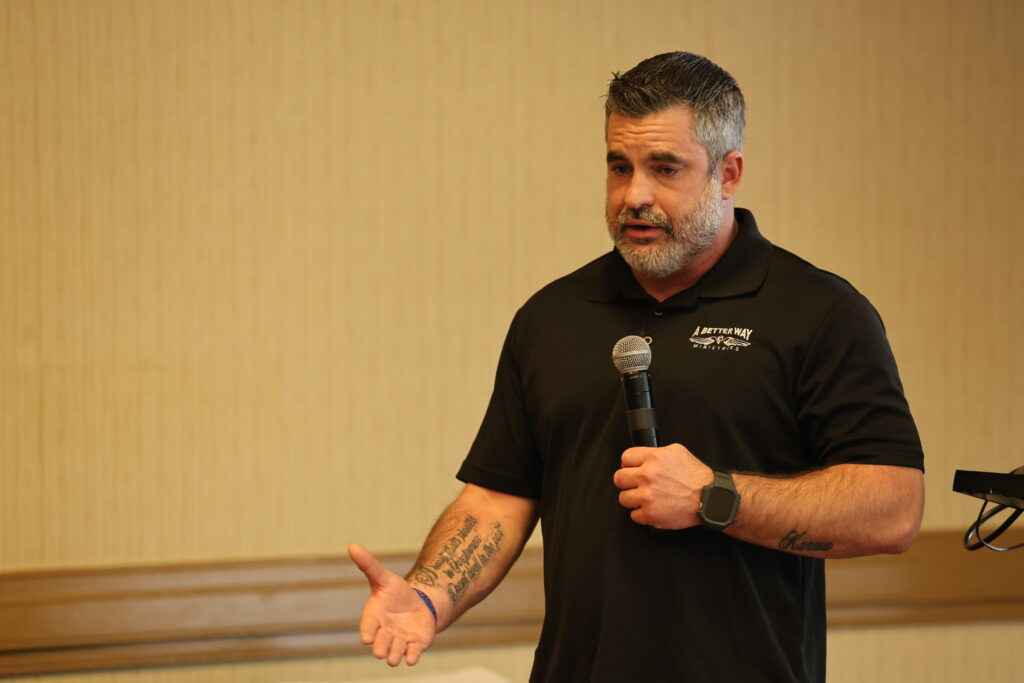
On-site businesses, such as a moving company, thrift store, woodshop, and mechanic shop, generate income for the ministry and provide skill development opportunities for participants. A thrift store further supports the organization’s mission to transform lives through faith and recovery.
Sean Kean from Canyon Solutions JCATS discussed improvements to enhance GPDC’s computerized workflow management.
Strategies for managing the stress of meeting the needs of clients were provided by The Empowerment Agency. Other presentations focused on resources available from GPDC service providers Hearts to Nourish Hope and Resilient Georgia.
GPDC Executive Director Omotayo Alli, said the Social Work Conference is an example of steps GPDC is taking to improve outcomes for clients and enhance the safety of communities throughout Georgia.
“I am unwavering in my commitment to delivering top-tier training for our team as they diligently work to serve those who cannot afford legal representation,” Alli stated. “Each day, we aim to offer the finest legal counsel that money can’t buy.”
GPDC, created by the Georgia General Assembly in 2003, represents approximately 85 percent of all criminal defendants in Georgia. Learn more at www.gapubdef.org.
Copyright © 2026 Georgia Public Defender Council. All Rights Reserved.
Human Trafficking Notice